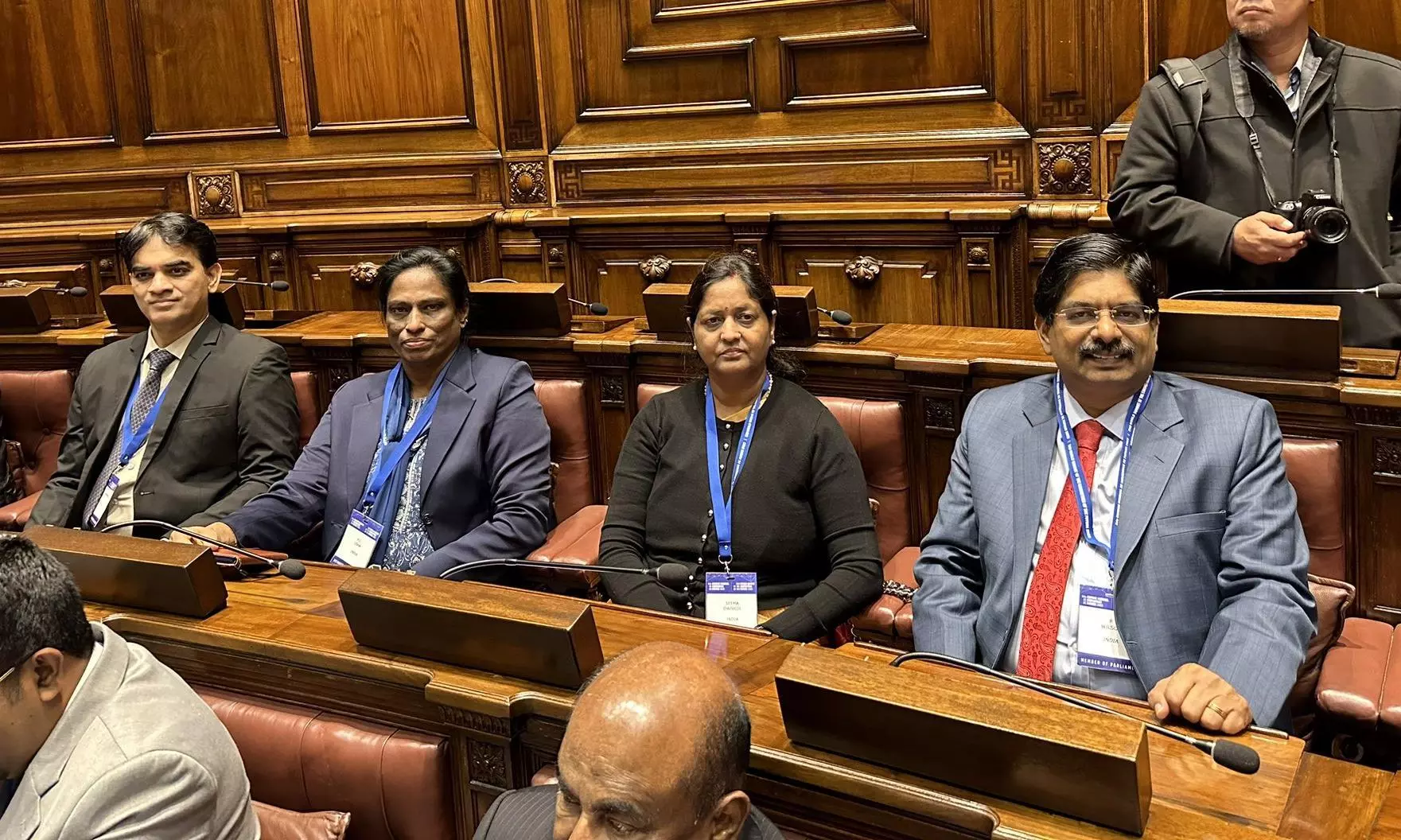
AI in parliaments: Global summit discusses opportunities and regulation
At IPU summit in Uruguay, 4-member Indian delegation seeks global framework for AI in line with arms treaty and other conventions

When one thinks of artificial intelligence (AI), one thinks of robots replacing human labour in factories, writing poetry, playing chess, taking on banking roles, and so on.
What about running a government? Surely, when AI is going to be deployed in almost every walk of life, the hallowed halls of parliaments could be seeing it, too? When, and not if, this happens, how do parliamentary functions change? Will governance improve? What are the challenges?
This formed the focus of the Second World Summit of the Committees of the Future. It was organised by the Inter-Parliamentary Union (IPU) in Montevideo, the capital city of Uruguay, on September 25-27. The summit saw participation by 200 parliamentarians from 70 countries, including India, who spoke on various topics related to the theme of the summit — ‘Bringing the future into the present: The democracy of the future, artificial intelligence and parliaments’.
The Montevideo summit, held by the IPU in collaboration with the Parliament of Uruguay, sought to build upon the first summit held in Helsinki in October 2022. Last year’s summit “recognised the fundamental importance of incorporating the future in present decision-making”.
The IPU is a Geneva-based forum set up in 1889 to promote peace through parliamentary diplomacy and dialogue. The forum has since grown to become a global organisation with 179 members and 14 associate members.
India’s participation
P Wilson, DMK Rajya Sabha MP, led a four-member delegation of Indian parliamentarians to the IPU summit. The other members were PT Usha, BJP Rajya Sabha MP Seema Dwivedi and Supreme Court lawyer and Rajya Sabha MP Niranjan Reddy.
Addressing the parliamentarians, Wilson spoke about the role of parliaments in framing laws on AI, keeping in view its flip side. “AI has been redefining society in ways that have never been anticipated. However, we cannot ignore the great threat AI poses to society. Therefore, human beings, with their natural intelligence, should always keep artificial intelligence under their control,” he said.
Wilson also emphasised the need for putting in place an international framework on AI in line with the arms treaty and other conventions. “There are demands from AI experts for a global regulatory framework for AI, similar to the treaties used to regulate nuclear arms use, as the competition to advance in the technology could lead to safety concerns being sidelined,” he observed.
Key concerns
The summit recognised the fact that AI “comes in many guises”. It poses challenges to regulation, as is widely discussed across industries. Where governance is concerned, there is potential for AI to be incorporated in the tasks of parliament. While this is aimed to enhance efficiency, improve decision-making processes and enable innovation, there are concerns around a range of issues including transparency, disinformation, and manipulation and privacy.
Among the sessions at the event was one in which major players who are leading the development of AI participated. Parliamentarians were given an opportunity to interact with representatives from Microsoft, Meta, AWS, Google, IBM, Mercado Libre, Open AI and CUTI. They posed various questions on the technologies available, their implementation possibilities, and the outcomes.
Once the summit ended, on Friday (September 29), the IPU, in partnership with the Association of Secretaries General of Parliaments (ASGP), published a Guide to digital transformation in parliaments. The guide is “designed to inform and create greater awareness among parliaments about the challenges and opportunities of using digital tools, and providing them with practical examples and support”.
“AI and machine learning are increasingly being explored by parliaments to automate various tasks, such as data analysis and speech recognition,” according to the guide. “AI-powered tools can also help parliamentarians to process vast amounts of data and improve decision-making.”

